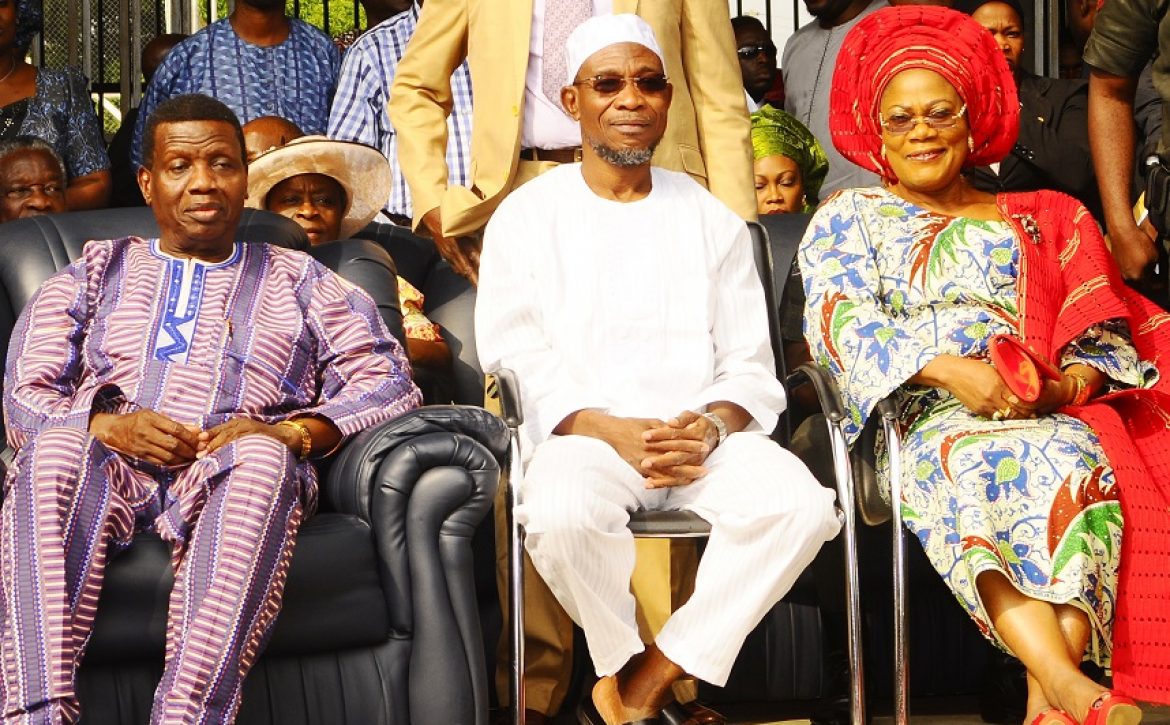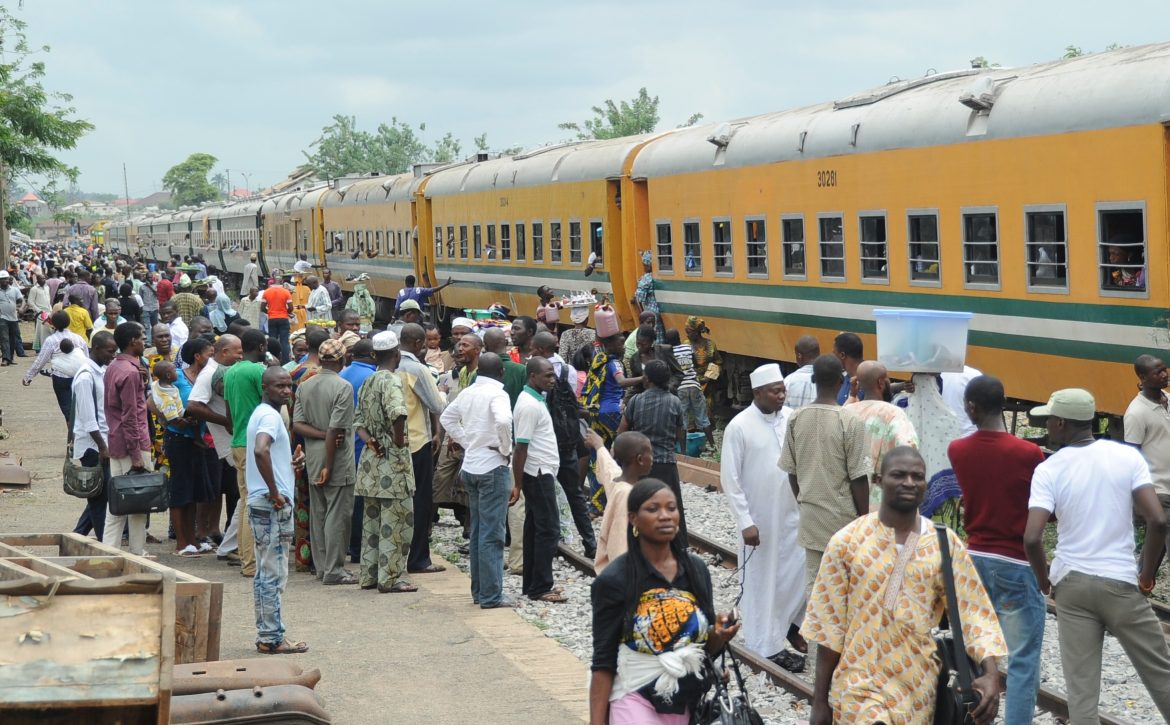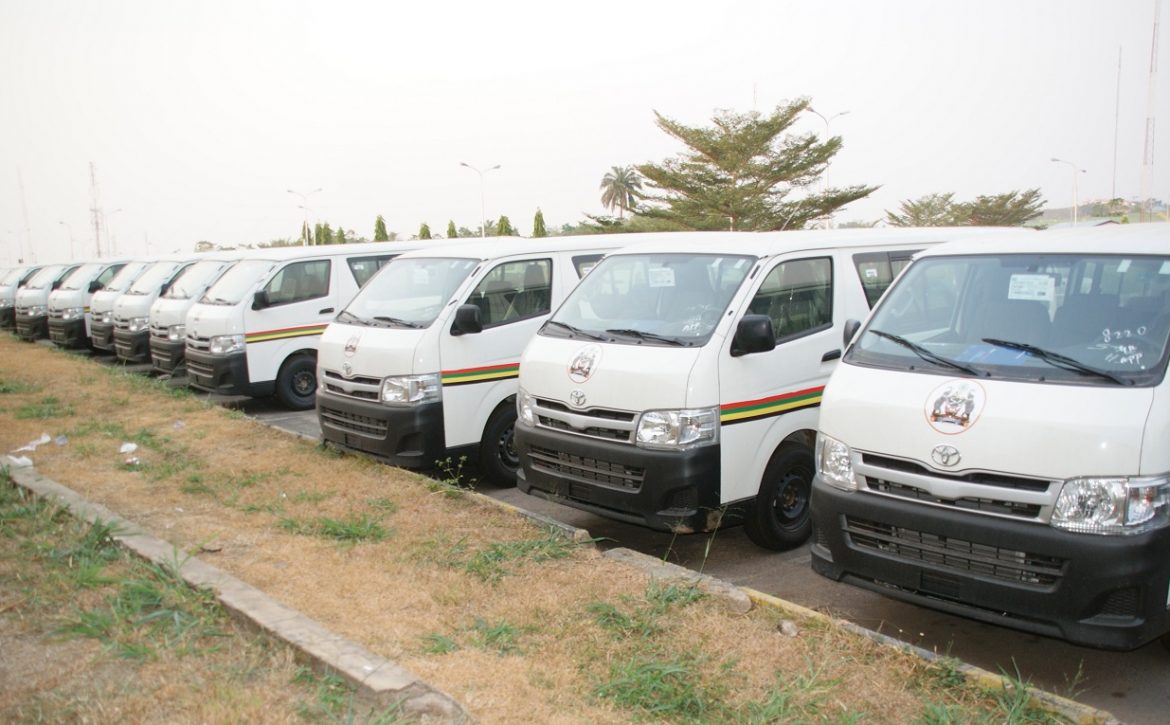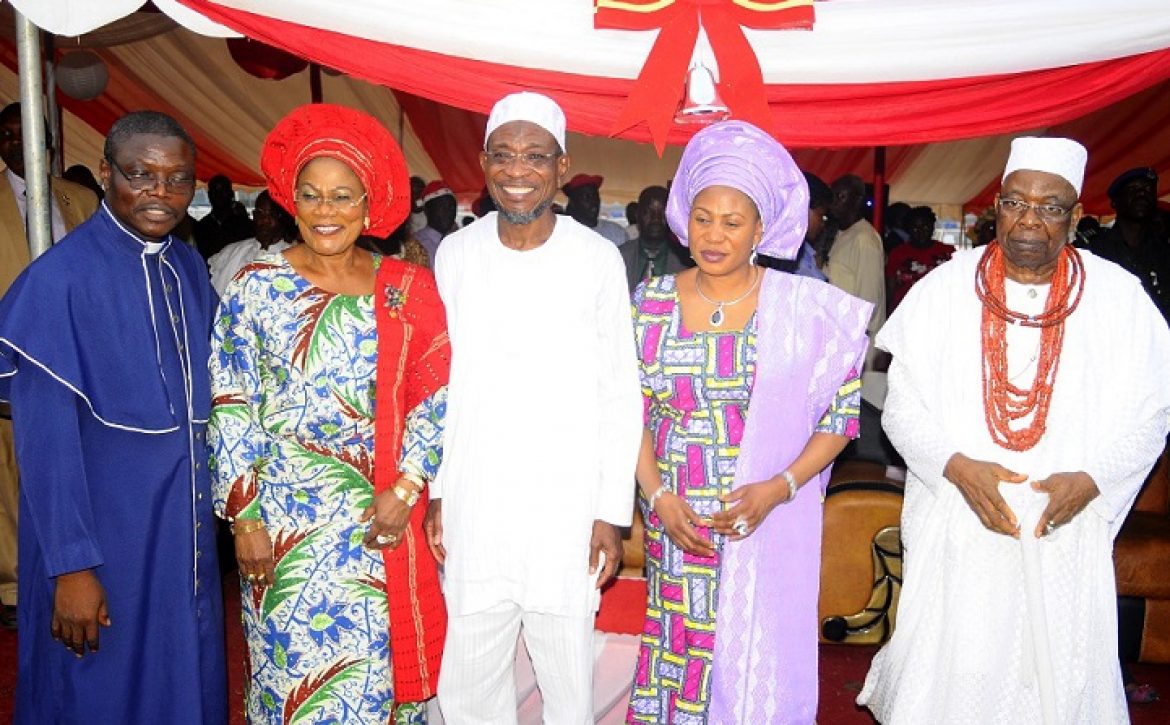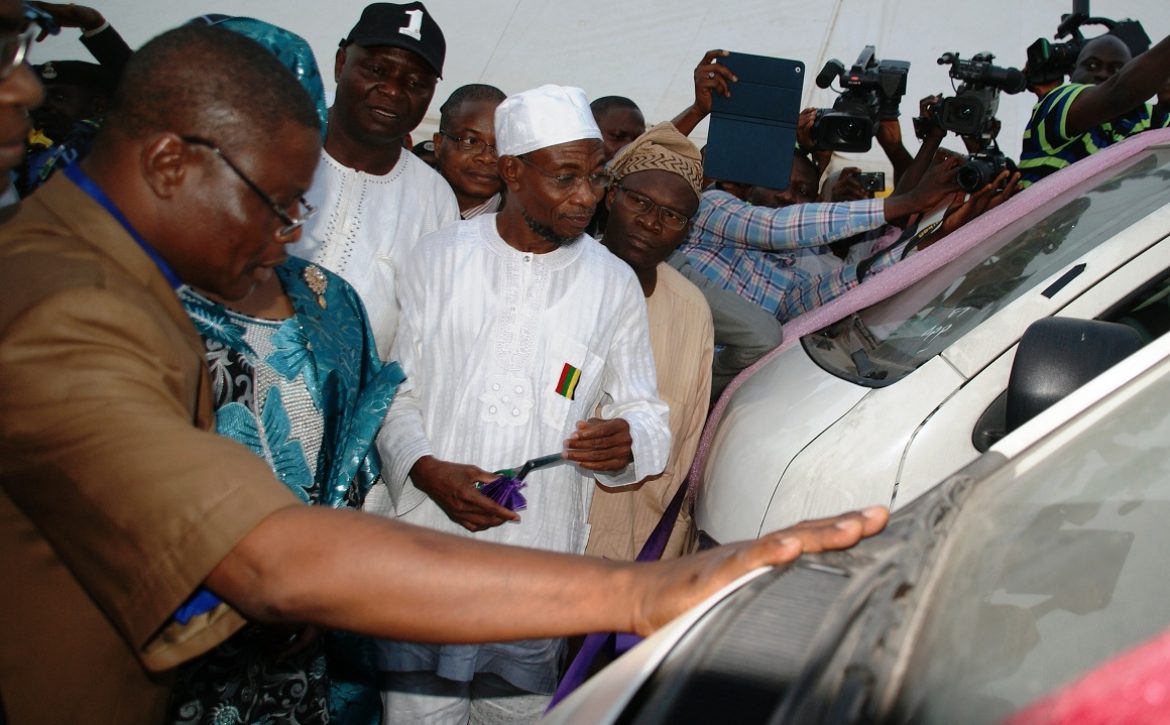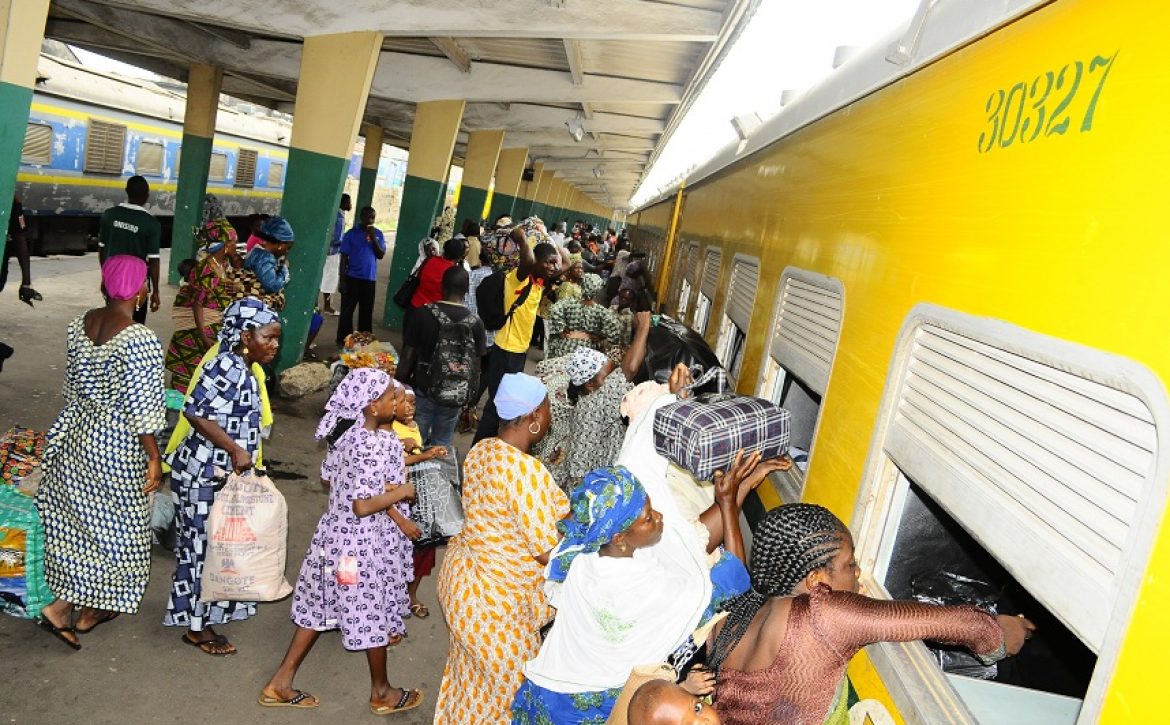Photos from the commissioning/Distribution of the vehicles at the Governor’s office, Abere, Osogbo, State of Osun on
Monday 23-12-2013

Chairman, Christian Association of Nigeria (CAN), State of Osun, Reverend
Elijah Ogundiya (left), blessing the 70 Vehicles (18 sitter Toyota Commuter
Bus) before distribution to members of the National Union of Road Transport
Workers (NURTW) by the State Government. With him are Governor Rauf
Aregbesola (in white cap); his deputy Mrs Titi Laoye-Tomori (2nd left); Commissioner for Commerce, Cooperative and Empowerment, Hon. Ismaila
Jayeoba Alagbada (right) and others, during the commissioning/Distribution
of the vehicles at the Governor’s office, Abere, Osogbo, State of Osun on
Monday 23-12-2013

From left, Sterling Bank Regional Business Director (South West), Mr.Ayo
Adebayo; Chairman, Christian Association of Nigeria (CAN), State of Osun, Reverend Elijah Ogundiya; State of Osun Deputy Governor, Mrs Titi
Laoye-Tomori; Governor Rauf Aregbesola; Commissioner for Commerce, Cooperative and Empowerment, Hon. Ismaila Jayeoba Alagbada and others, during the Commissioning and Distribution of 70 Vehicles (18 sitter Toyota
Commuter Bus) to members of the National Union of Road Transport Workers
(NURTW) by the State Government, at the Governor’s office, Abere, Osogbo, State of Osun on Monday 23-12-2013

From left, Chairman, Christian Association of Nigeria (CAN), State of Osun, Reverend Elijah Ogundiya; State of Osun Deputy Governor, Mrs Titi
Laoye-Tomori; Governor Rauf Aregbesola; Commissioner for Commerce, Cooperative and Empowerment, Hon. Ismaila Jayeoba Alagbada and others, during the Commissioning and Distribution of 70 Vehicles (18 sitter Toyota
Commuter Bus) to members of the National Union of Road Transport Workers
(NURTW) by the State Government, at the Governor’s office, Abere, Osogbo, State of Osun on Monday 23-12-2013


From left, Chairman, Christian Association of Nigeria (CAN), State of Osun, Reverend Elijah Ogundiya; State of Osun Deputy Governor, Mrs Titi
Laoye-Tomori; Governor Rauf Aregbesola; Commissioner for Commerce, Cooperative and Empowerment, Hon. Ismaila Jayeoba Alagbada and others, during the Commissioning and Distribution of 70 Vehicles (18 sitter Toyota
Commuter Bus) to members of the National Union of Road Transport Workers
(NURTW) by the State Government, at the Governor’s office, Abere, Osogbo, State of Osun on Monday 23-12-2013

Governor State of Osun, Ogbeni Rauf Aregbesola, test driving a vehicle,
during the Commissioning and Distribution of 70 Vehicles (18 sitter Toyota
Commuter Bus) to members of the National Union of Road Transport Workers
(NURTW) by the State Government, at the Governor’s office, Abere, Osogbo, State of Osun on Monday 23-12-2013

Some of the 70 Vehicles (18 sitter Toyota Commuter Bus) to members of the
National Union of Road Transport Workers (NURTW) by the State Government,
at the Governor’s office, Abere, Osogbo, State of Osun on Monday 23-12-2013




